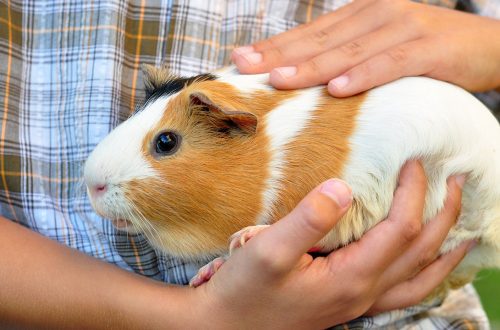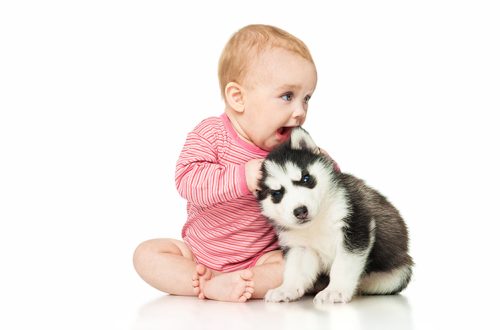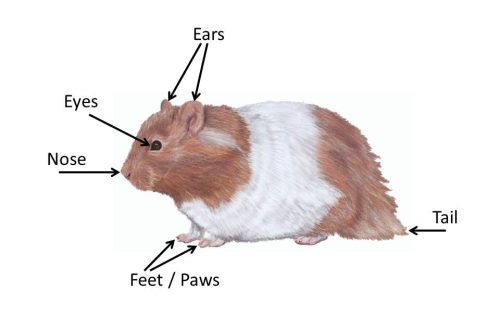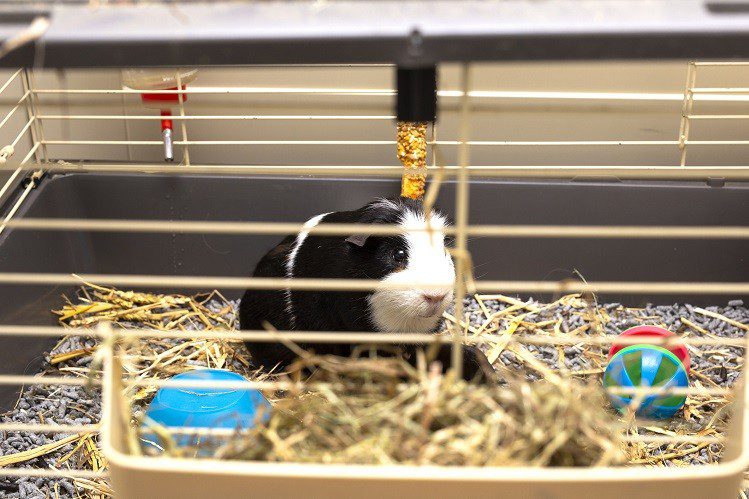
Home alone: how to leave a rodent on vacation
Did you know that aquarium fish can be left alone at home for a week or more – and nothing will happen to them? Rodents are also considered unpretentious pets, but what about them? For how many days can they be left – and is it possible at all? Let’s talk about this in our article.
Rats, mice, hamsters, chinchillas, degus, guinea pigs – all these rodents have different personalities. Hamsters and mice are usually turned on by those who like to watch pets from the side, without much contact with them. These little animals live “on their own” and do not become attached to the owners.
Decorative rats are champions in the world of tricks. Such pets are often given to people who, in their childhood, dreamed of becoming a trainer. It is incredibly entertaining to watch how easily a rat goes through complex mazes and how quickly he learns.
But guinea pigs and degus are perhaps the most “tame” rodents. With the right approach, they get used to a person, they sit on his palm or shoulder with pleasure, allow themselves to be stroked, and respond to the name. But even they can easily endure separation from you for several days, if the cage is properly equipped.
Rodents calmly endure the absence of the owner. They do not get bored and do not fall into a state of stress due to separation from the owner, like dogs. The main thing is to provide them with a calm environment, silence and provide the cage with everything necessary.

If we are talking about a trip of up to three days, you don’t have to worry: the rodent will calmly endure your absence. Clean the cage before you leave, add fresh food to the automatic feeder, change the water in the sippy cup, and that’s it, you’re good to go!
If you are leaving for 1-3 days, the supply of food in the cage must correspond to the norm for at least three days. Water must be poured not only into the bowl, but also into the shelf.
But what if you need to leave for a week? In this case, you will need a “safety net”: a person who will come at least once during this period to clean up the cage and replace food and water. And you can also send the rodent along with the houses “on vacation” to your parents or best friends.
Leaving a rodent alone for more than three days is dangerous. During this period, the pet’s cage will already become dirty. In addition, you do not know how the animal will feel alone: what if he reacts badly to food and needs help?
Make sure your pet is as calm and comfortable as possible.
In the cage, there must be safe toys that fit the size of the rodent, and a cozy house.
Do not leave the cage in direct sunlight, on a balcony and in a draft.
If, in addition to the rodent, you also have pets – dogs or cats – they should not have access to the cage during your absence. Even if until that time they did not show any interest in the rodent.
In addition to a safe space, you should always remember that a rodent has sensitive digestion. What does it mean?
Even small errors in the diet can lead to flatulence and diarrhea.
For the period of your absence (no more than 2-3 days), it is important to stock the “correct” food familiar to the rodent. Keep only typical food, do not add any new ingredients to the diet. The supply of food should correspond to the norm of three days.
Wrong diet (inappropriate foods, unbalanced food) can lead to the death of the animal in a few minutes. Experimenting with feeding without indications is not worth it.
Herbivorous rodents (guinea pigs, degus, chinchillas) do not need grain feed, but quality hay. When leaving, a large amount of fresh, cleaned hay should be left in the cage. It is better to purchase environmentally friendly, high-mountain hay specifically for rodents (for example, Fiory Alpine hay). Leaving such hay to a rodent, you can not worry that the pet’s body will not take it well.
Herbivorous rodents should always have access to hay!
Insufficient fluid intake for rodents is also dangerous. If the animal drinks little water, the food in the gastrointestinal tract becomes denser, its progress becomes more difficult. This disrupts the balance of microflora in the intestines: bacteria multiply and cause flatulence.
For a rodent to drink enough, one bowl is not enough. Install several drinkers with clean water in the cage.
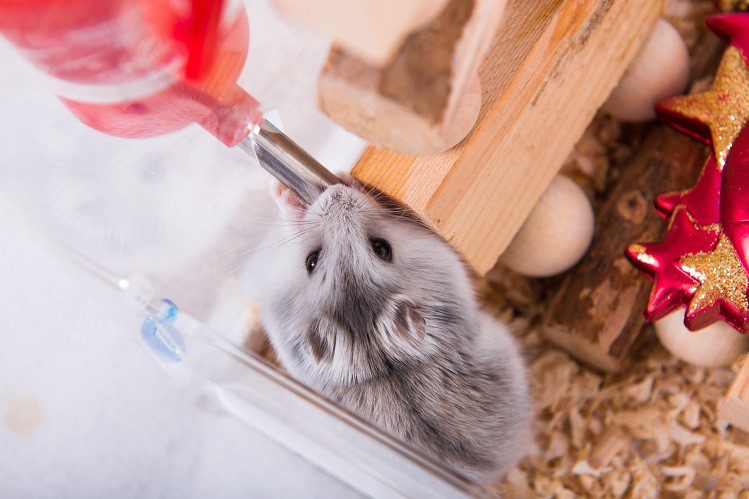
If a rodent eats “something wrong” or swallows a lot of wool, it will not vomit like a cat. Food will accumulate in the body along with particles of wool, bloating will occur. It is very dangerous.
Symptoms in rodents develop very quickly, the owner may not have time to react. There are a lot of stories about how a hamster died “from scratch”, and often this is the reason.
That is why it is important to leave a professional balanced diet for the rodent and make sure that during your absence someone can look after the pet.
And finally, an important life hack. Print out the phone number of a trusted veterinarian and stick it on your refrigerator. Warn the person who will look after your pet about this. If something alerts him in the state of a rodent, an important contact will be at hand.
We wish you a pleasant trip and a happy return home to your beloved pets!



